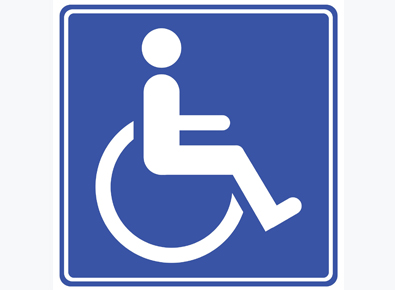
The Blue Badge Scheme which allows parking in disabled spaces has been extended to include hidden disabilities, including autism and mental health problems. This is the first major change to the scheme since it was introduced 50 years ago.
The new criteria will come into force on 30th August 2019. The Department of Transport has been working with specialists to expand the eligibility criteria and the new scheme is part of the government’s drive for greater parity between physical and mental health.
Following a consultation last year, the Government has announced the extension, as well as a review into the fraudulent use of Blue Badges, which has increased by 45% in the past year.
The new Blue Badge Scheme will now mean that people will be eligible if they:
Cannot take a journey without their being a serious risk to their health or safety or that of any other person
Cannot undertake a journey without it causing them considerable psychological distress
Have considerable difficulty when walking, both physically and the experience of walking.
Drivers or passengers with dementia, anxiety disorders, reduced mobility or other mental health conditions may find travel difficult, especially when it comes to finding a parking space. This new guidance which represents the biggest change to the scheme since the 1970s hopes to offer a lifeline to people who often find road travel difficult by providing better access to work opportunities and amenities as well as helping to tackle the loneliness epidemic by enabling them to stay connected to family and friends.
Speaking about the new scheme, Chris Grayling, Transport Secretary, said: “As a society we don’t do enough for people with hidden disabilities. I hope this change to Blue Badge guidance will make a real difference to people’s lives.”
Minister for Disabled People, Justin Tomlinson, said: “It is unacceptable that people with hidden disabilities still face discrimination when using disabled facilities, such as parking spaces. Extending the Blue Badge Scheme is a watershed moment in ensuring that those with hidden disabilities are able to travel with greater ease and live more independent lives.”
The new criteria will also look at ensuring that there is a greater understanding as to who is eligible for a badge and when it can or cannot be used, as well as when and how to surrender one. To help with the expected increase in applications, the Ministry of Housing Communities and Local Government will be providing extra money to local councils for the first year of the programme and a task group will be working to assist in correct badge usage. While the extension allows for a greater number of people to use a Blue Badge, not everyone with non-physical disabilities will qualify, it will be up to the local authority to decide if an applicant meets the criteria, as is currently the case.


 to add an item to your Itinerary basket.
to add an item to your Itinerary basket.


